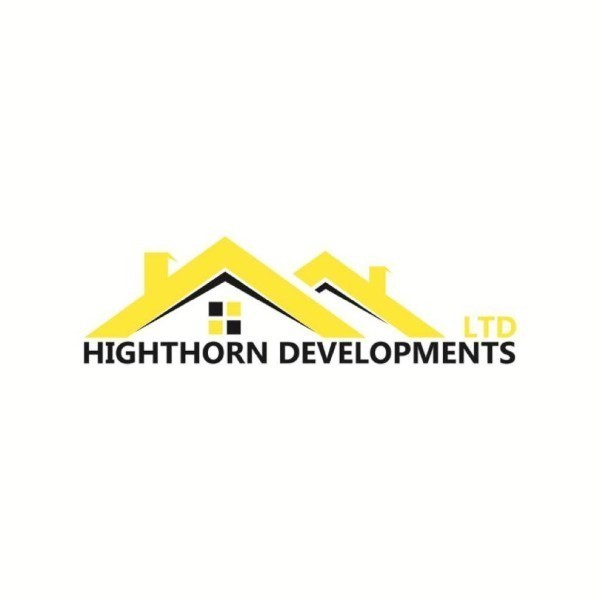Loft Conversions in County Durham
Filter your search
Post your job FREE and let trades come to you
Save time by filling out our simple job post form today and your job will be sent to trades in your area so you can sit back, relax and wait for available trades to contact you.
Post your job FREESearch Loft Conversions in County Durham by town
Understanding Loft Conversions in County Durham
Loft conversions in County Durham have become a popular choice for homeowners looking to maximise their living space without the hassle of moving. This transformation not only adds value to your property but also provides a unique and personalised space tailored to your needs. Whether you're considering a new bedroom, office, or playroom, a loft conversion can be a cost-effective solution.
The Benefits of Loft Conversions
Loft conversions offer numerous benefits, making them an attractive option for many homeowners. Firstly, they increase the usable space in your home, which is particularly valuable in areas where property prices are high. Additionally, a well-executed loft conversion can significantly boost your home's market value, often by more than the cost of the conversion itself.
Moreover, loft conversions can be customised to suit your lifestyle. Whether you need an extra bedroom, a home office, or a play area for the kids, the possibilities are endless. This flexibility allows you to create a space that truly meets your family's needs.
Cost-Effectiveness
Compared to other home extension options, loft conversions are generally more cost-effective. They utilise the existing structure of your home, reducing the need for extensive construction work. This not only saves money but also minimises disruption to your daily life.
Energy Efficiency
Modern loft conversions can also improve your home's energy efficiency. By adding insulation and energy-efficient windows, you can reduce heat loss and lower your energy bills. This is particularly beneficial in County Durham, where the climate can be quite chilly.
Types of Loft Conversions
There are several types of loft conversions to consider, each with its own advantages and suitability depending on your home's structure and your personal preferences.
Velux Loft Conversion
A Velux loft conversion is one of the simplest and most cost-effective options. It involves installing Velux windows into the existing roofline, allowing natural light to flood the space. This type of conversion is ideal for homes with sufficient headroom and is less disruptive than other options.
Dormer Loft Conversion
Dormer conversions are popular for those needing additional headroom and floor space. This involves extending the roof vertically to create a box-like structure, providing more usable space. Dormer conversions are versatile and can be adapted to suit various property styles.
Mansard Loft Conversion
Mansard conversions are more extensive and involve altering the entire roof structure. This type of conversion creates a flat roof with a slight slope, maximising the available space. While more costly, Mansard conversions offer significant additional living space and can dramatically transform your home.
Hip to Gable Loft Conversion
For homes with a hipped roof, a hip to gable conversion can be an excellent choice. This involves extending the sloping side of the roof to create a vertical gable wall, increasing the internal space. This type of conversion is particularly popular in semi-detached and detached properties.
Planning Permission and Building Regulations
Before embarking on a loft conversion in County Durham, it's essential to understand the planning permission and building regulations requirements. While many loft conversions fall under permitted development rights, certain conditions must be met.
When is Planning Permission Required?
Planning permission is generally not required for a loft conversion if it meets specific criteria, such as not exceeding a certain volume or altering the roofline significantly. However, if your property is in a conservation area or is a listed building, you may need to seek permission.
Building Regulations Compliance
Regardless of planning permission, all loft conversions must comply with building regulations. These regulations ensure the safety and structural integrity of the conversion, covering aspects such as fire safety, insulation, and staircase design. It's crucial to work with a qualified architect or builder to ensure compliance.
Choosing the Right Contractor
Selecting the right contractor is vital to the success of your loft conversion project. A reputable contractor will guide you through the process, from design to completion, ensuring a high-quality finish.
Research and Recommendations
Start by researching local contractors with experience in loft conversions. Ask for recommendations from friends or family who have undertaken similar projects. Online reviews and testimonials can also provide valuable insights into a contractor's reliability and workmanship.
Obtaining Quotes and Comparing Costs
Once you've shortlisted potential contractors, obtain detailed quotes from each. Compare these quotes carefully, considering not only the cost but also the scope of work and materials included. Remember, the cheapest option isn't always the best; quality and experience are crucial factors.
Designing Your Loft Conversion
The design phase is an exciting part of the loft conversion process, allowing you to create a space that reflects your style and meets your needs.
Maximising Space and Light
When designing your loft conversion, consider how to maximise space and natural light. Clever use of windows, skylights, and mirrors can create a bright and airy environment. Built-in storage solutions can also help make the most of the available space.
Choosing the Right Layout
The layout of your loft conversion should be practical and functional. Consider how you'll use the space and plan the layout accordingly. For example, if you're creating a bedroom, ensure there's enough room for a bed and wardrobe, while a home office may require space for a desk and shelving.
Financing Your Loft Conversion
Financing a loft conversion can be a significant investment, but there are various options available to help manage the cost.
Personal Savings and Loans
If you have sufficient savings, this can be the simplest way to finance your loft conversion. Alternatively, personal loans or home improvement loans can provide the necessary funds, often with competitive interest rates.
Remortgaging Your Home
Remortgaging your home to release equity is another option. This can provide a lump sum to cover the cost of the conversion, although it's essential to consider the long-term implications on your mortgage repayments.
Frequently Asked Questions
What is the average cost of a loft conversion in County Durham?
The cost of a loft conversion in County Durham can vary depending on the type and complexity of the project. On average, prices range from £20,000 to £50,000.
How long does a loft conversion take to complete?
The duration of a loft conversion project can vary, but most take between 6 to 12 weeks to complete, depending on the complexity and size of the conversion.
Do I need an architect for a loft conversion?
While not always necessary, hiring an architect can be beneficial, especially for complex conversions. They can help with design, planning permission, and ensuring compliance with building regulations.
Can all lofts be converted?
Not all lofts are suitable for conversion. Factors such as headroom, roof structure, and access can affect the feasibility of a conversion. A professional assessment can determine if your loft is suitable.
Will a loft conversion add value to my home?
Yes, a well-executed loft conversion can add significant value to your home, often increasing its market value by more than the cost of the conversion.
What are the common challenges in loft conversions?
Common challenges include ensuring sufficient headroom, complying with building regulations, and managing costs. Working with experienced professionals can help overcome these challenges.
Final Thoughts on Loft Conversions in County Durham
Loft conversions in County Durham offer a fantastic opportunity to enhance your home's functionality and value. By understanding the different types of conversions, planning requirements, and design considerations, you can create a space that meets your needs and complements your lifestyle. With careful planning and the right team, your loft conversion can be a rewarding investment in your home's future.








